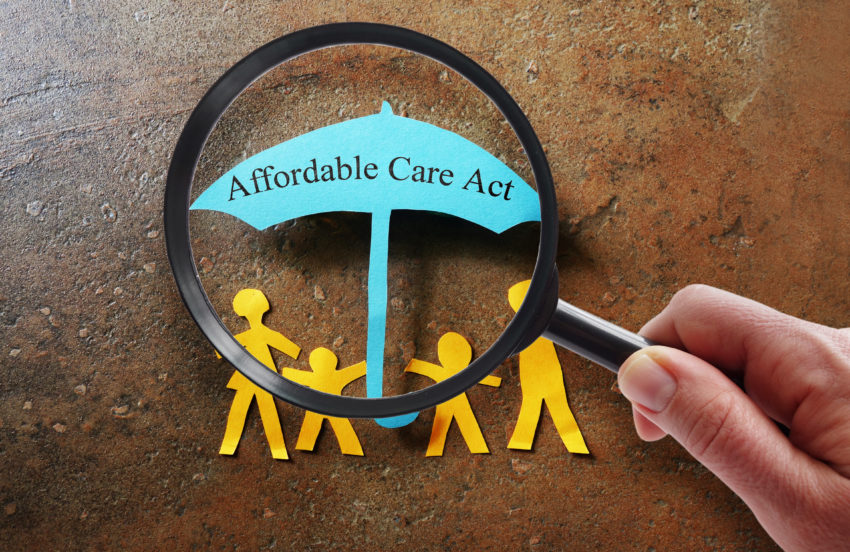
Share On Social!
Healthcare agencies are seeing a big decline in the number of Central Texas Latinos signing up for Obamacare health insurance through HealthCare.gov, TPR reports.
This decline might be happening in other Latino-populated parts of the U.S., too.
In fact, with less than a week before the sign-up period for 2019 Obamacare plans ends on Dec. 15, 2018, national health insurance sign-ups are down 11% through the first five weeks compared with the same time last year via HealthCare.gov, the federal Affordable Care Act (ACA) exchange.
Why the Decline?
Experts who have been following ACA enrollment closely cite several factors.
According the latest reports, the Trump administration erased a Latino outreach guide from the ACA website.
 This violates ACA regulations requiring navigators undergo training to ensure they meet the needs of underserved and vulnerable populations like the Latino community, according to the Sunlight Foundation report.
This violates ACA regulations requiring navigators undergo training to ensure they meet the needs of underserved and vulnerable populations like the Latino community, according to the Sunlight Foundation report.
“The removed PDF document consisted of a Powerpoint slideshow detailing specific challenges to enrollment for Latino communities—including limited English proficiency and fear of immigration enforcement—and how to support people in overcoming those barriers,” according to Rewire News.
Public charge is another big reason.
The Trump administration recently announced draft changes to the “Public Charge” rule that would penalize legal immigrants applying for green cards if they use public benefits, such as food assistance.
For a Public Charge test, immigration officials look at all a person’s circumstances in determining whether they are likely to become a public charge in the future, both positive and negative. This includes age, health, income, assets, resources, education/skills, family they must support, and family who will support them. If the government determines a person is likely to become a “public charge,” it can deny a person admission to the U.S. or lawful permanent residence (or “green card” status), according to the National Immigration Law Center.
“This would force immigrant families to make an impossible choice between meeting basic needs and keeping their families together in this country,” according to the National Immigration Law Center.
Dec. 10, 2018, is the last day to submit a public comment on Public Charge.
Other Issues and Changes
Here are additional ACA issues that may affect Latinos:
- In one of the most significant changes to the ACA market for 2019, the federal government is allowing short-term health insurance policies to be sold with coverage terms of up to one year. This means more plan choices. Hence, people are signing up for Medicaid instead of ACA. You may also be allowed to renew the same short-term policy annually for up to three years. The availability of these plans vary by state.
- In 2019, there will be no more penalty for going uninsured. In 2018, the penalties for going uninsured was the greater of $695 per person, or 2.5%.
- The national open enrollment period for ACA health plans will run for shorter enrollment period, down from three months in most previous years to just six weeks this year, although dates vary by state.
- An analysis by Avalere Health and the Associated Press found that the average increase for ACA plans will be just above 3%, compared to the double-digit rate hikes of 2018. But consumers who don’t qualify for subsidies to help lower the cost of premiums — individuals earning just above $49,000 per year — will still face very high costs. Hence, prices will remain high for people earning too much to qualify for subsidies.
- As in years past, people who qualify for federal subsidies to help cover the cost of their health insurance premiums will continue to be largely insulated from price increases and thereby, the price protections for the subsidized.
- New rules also have been established that will allow industry, trade and professional groups to offer health plans that don’t include some of the benefits required by the ACA, thereby the association health plans have been expanded too.
- It has become more easy to enroll in ACA plans by allowing electronic direct enrollment through licensed online brokers, like eHealth. Thereby, the goverment has more marketplaces to shop for coverage. Consumers will be able to shop more easily through private marketplaces where they can also access other ACA-compliant plans not available through government website.The Trump administration also loosened restrictions about buying plans that don’t meet the standards set by Obamacare.
It’s still possible for a surge in healthcare enrollment over the final days, as people wait until the last minute to choose health-care plans for 2019.
Explore More:
Healthy Families & SchoolsBy The Numbers
142
Percent
Expected rise in Latino cancer cases in coming years



